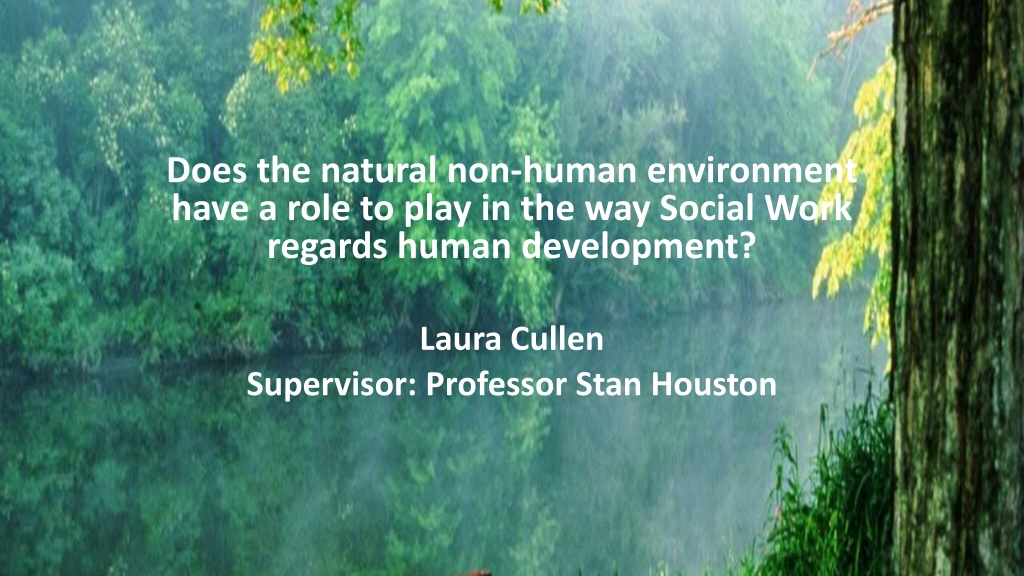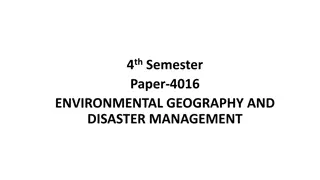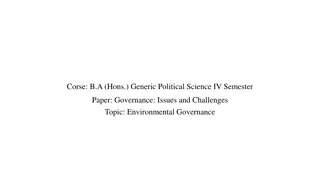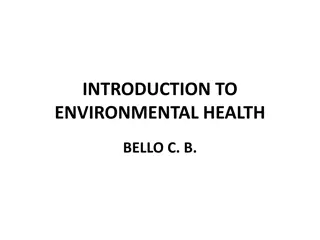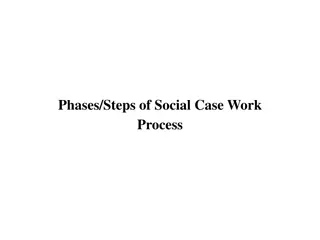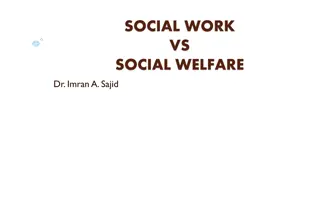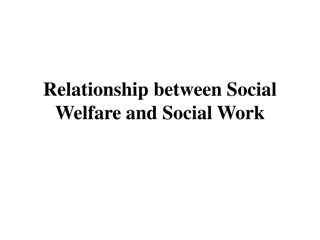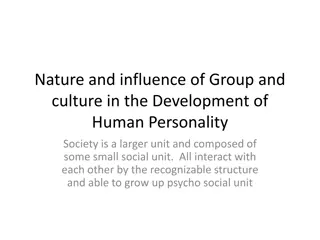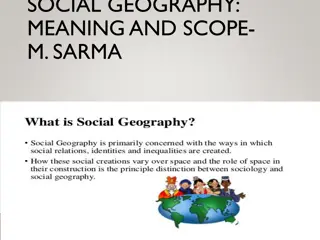Exploring the Influence of the Natural Environment on Human Development in Social Work
This research delves into the often overlooked role of the natural environment in human development within the realm of Social Work. It aims to challenge the conventional constructs and reflect on power dynamics while exploring ways to integrate environmental sensitivity into social work theory and practice. Through in-depth research questions and a qualitative methodology, the study seeks to shed light on the impact of the natural environment on mental health, identity formation, and childhood development, with an emphasis on the need for future education of social workers in universities/colleges.
Download Presentation

Please find below an Image/Link to download the presentation.
The content on the website is provided AS IS for your information and personal use only. It may not be sold, licensed, or shared on other websites without obtaining consent from the author. Download presentation by click this link. If you encounter any issues during the download, it is possible that the publisher has removed the file from their server.
E N D
Presentation Transcript
Does the natural non-human environment have a role to play in the way Social Work regards human development? Laura Cullen Supervisor: Professor Stan Houston
Background Natural environment missing from theories of human development The crisis of climate change IFSW Global Agenda for Social Work My own nascent intuition
International Social Work Conference Dublin Mel Gray said there is still a huge amount of work to do to convince social work that the environment is social work s business The third pillar of the Global Agenda is Environmental sustainability
Aims and Objectives To review current studies on the influence of the natural environment on human development (mental health, identity formation and childhood development) To challenge Social Work s person-in- environment construct Power and inequality reflexivity To answer the research question
Research Questions Should the natural non-human environment have a role to play in the way Social Work regards human development? What is the impact (psychologically, spiritually, physically) of the natural environment on human persons? What are some practical ways Social Work can incorporate an environmental sensitivity into its theory and practice? How can this information inform theories of human development and how people are encountered and understood within Irish organisational Social Work settings, such as Tusla.
What does the literature say? Human Development Connection and meaning Future education of social workers in universities/colleges. Inequality
Methodology The philosophical underpinnings = hermeneutic phenomenology , and of particular influence was the philosopher Martin Heidegger. Qualitative narrative literature review
Summary of Findings Childhood development Mental health The natural environment has an impact on: Identity formation Empathy levels
Access to nature is not free or available to all (the impacts of climate change will disproportionality effect poorer people). Access to nature is not free or available to all (the impacts of climate change will disproportionality effect poorer people).
Implications for Social Work eco-assessments (a person s coping mechanisms); TOPS; education; community based work; having a voice in the public sphere Social Workers are ideally suited to embrace the challenge that climate change puts forth. Our natural surroundings have an effect on us, and holistic Social Work practice should acknowledge this.
